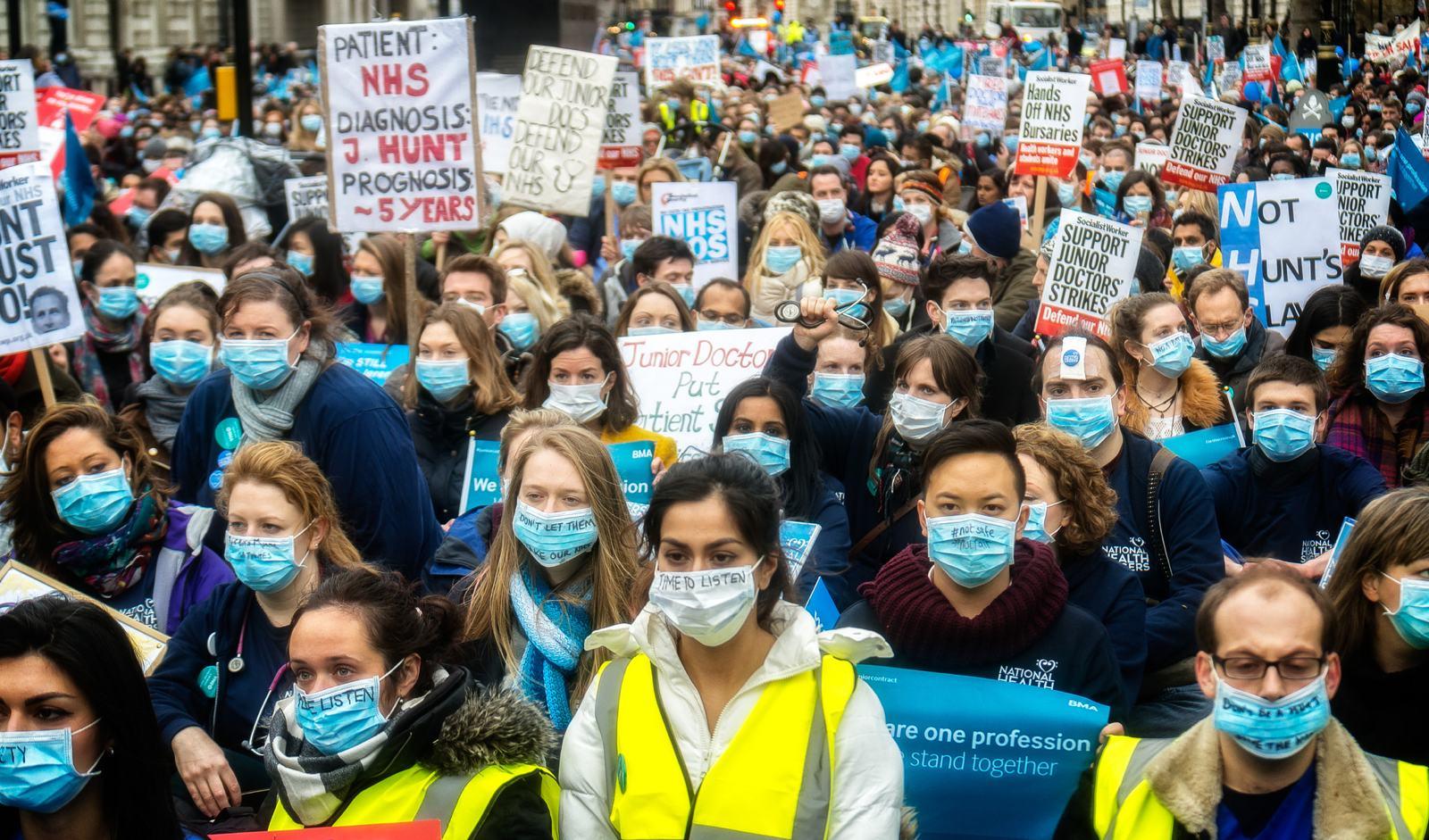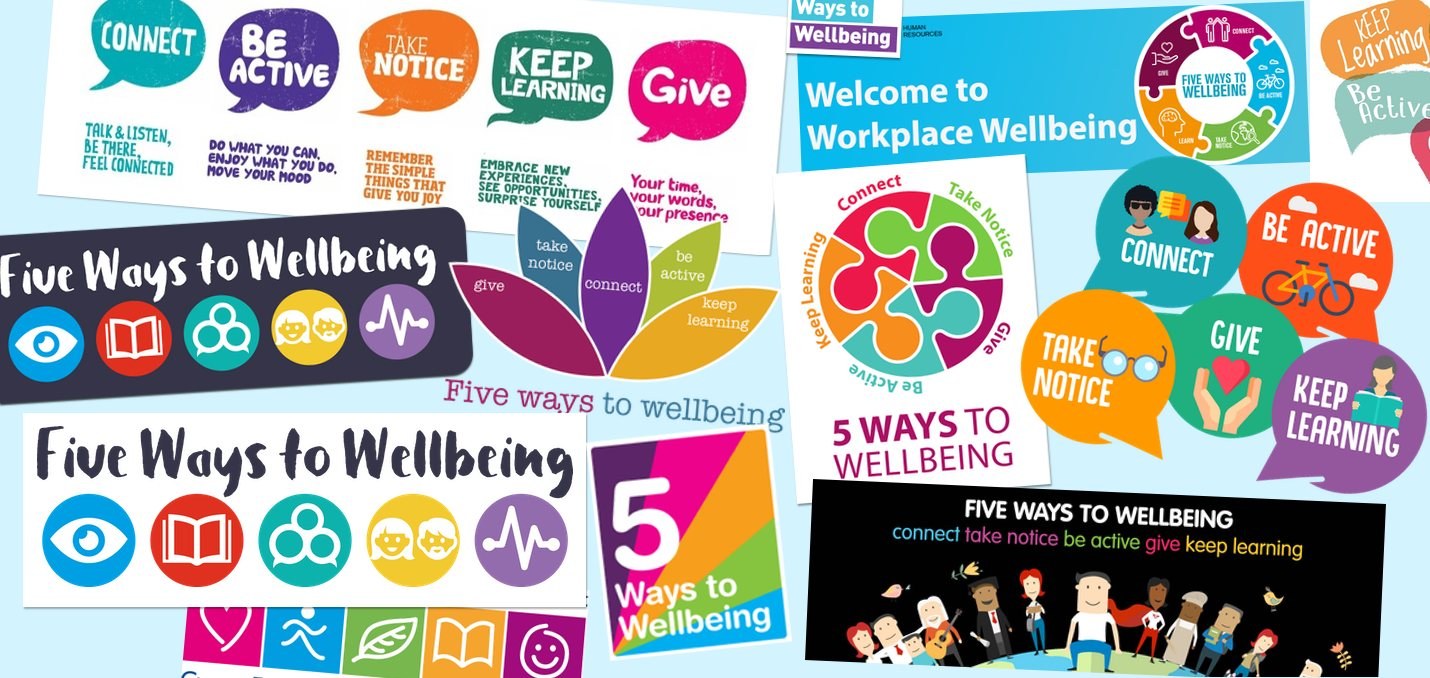Does new economics need wellbeing?
Without a power analysis, wellbeing economics misses the mark
20 March 2019
A few weeks back I was invited onto NEF’s Weekly Economics Podcast to talk about mental health. We discussed why we continue to focus policy on economic growth instead of things like wellbeing. I argued that, despite the inadequacy of GDP as a measure of progress, it remains deeply rooted in the way that economists and politicians think, and a symbol of just how broken our system is.
Cutting to the point as usual, our podcast host Ayeisha retorted: “It isn’t necessarily broken, it’s very much serving the purpose it was designed to, right? Things like debt and… precarity are not accidents of the economic system, they’re things that hold it up and make it function.”
She’s right of course. Many of the drivers of poor wellbeing are built into our neoliberal economic system, a system that, since the 1980s, has been designed and maintained by the wealthy for their own interests. Too often, however, the question of power is sidestepped by the increasing number of charities, academics and policy initiatives making the case for the measurement and pursuit of wellbeing as a primary goal of policy.
NEF is one of those wellbeing advocates, but some colleagues, whose opinions I respect, say our wellbeing work is at best a distraction from the real work of rebuilding the economy and at worst undermines it. Almost twenty years since NEF began to work on wellbeing, it’s time to ask: do the doubters have a point?
The history of wellbeing in new economics
NEF’s wellbeing work began in the early 2000s in a very different political context. The grip of neoliberal economic orthodoxy was tight, and projects such as the National Accounts and Happy Planet Index were seized upon by many thirsty for dramatically new economic vision. In this context, the findings from wellbeing research that social relationships are more of a predictor of wellbeing than income made sense. It explained why a period of modest income growth but high inequality and apparent individualism just didn’t feel like progress.
The climate crisis was a central motivation for NEF’s wellbeing work. A primary challenge was how to transition towards lower consumption. It was hoped that evidence of the centrality of non-material things (such as NEF’s Five Ways) to wellbeing would help cushion the blow.
Because the people who needed to consume less were the middle and upper classes, these were often the key audience for this work. However, this was always combined with economic justice. If wellbeing were adopted as a primary indicator then the economic implications were radical: evidence of diminishing returns to income, and the importance of security of work and housing, all pointed away from neoliberal orthodoxy and towards a transformative, redistributive economic agenda.
In this way, wellbeing presented more than individual policy prescriptions – it presented a new direction, away from the burgeoning materialism of the 1990s and towards a wellbeing economy that worked for people and planet.
“Wellbeing presented more than individual policy prescriptions – it presented a new direction”
In 2019, ten years after the financial crash, much has changed. The mask of benign neoliberalism has slipped. The rich survived the biggest economic crisis in a generation with barely a dent to top incomes, while poverty rates, homelessness and personal debt have soared. The left has won significant ground on key issues such as inequality, privatisation and deregulation. At the same time, we are battling a new authoritarianism built on stoked fears of immigration and offering another, very ugly, alternative to the failings of the neoliberal project.
These changes left wellbeing somewhat adrift. While it has certainly had an impact on some, it has not been responsible for the recent leftward shift in popular economic opinion. For that, we have to thank the tireless work of anti-austerity campaigners, stagnating wages, soaring wealth inequality, and disastrous deregulation, tragically illustrated at Grenfell.
For the most part, the movement for new economics is currently speaking the language of economic justice and corporate greed, not wellbeing economics.

Where wellbeing misses the mark
Some of the aversion to wellbeing is due to its fluffy reputation. Journalists looking for a light-hearted story are quick to report on stories about lollipops and birdsong. Then there’s the tiresome headlines every time regional breakdowns are published, prompting stories on the ‘happiest places in the UK’, a habit recently adopted by one estate agent who seems to imply that people can find happiness by moving house, somewhat missing the socio-economic issues underlying Britain’s geographic inequality.
A more serious problem is that too much wellbeing research tries to provide individual solutions to collective problems. One example was research led by LSE economist Richard Layard in 2016, which claimed that mental illness, rather than poverty or inequality, is responsible for low wellbeing.
The research and its methods were widely criticised, mostly for the strange methodological decision to separate indicators on mental illness and low wellbeing. Because the two are so closely linked, they crowded out other economic indicators such as poverty and inequality. These criticisms were largely drowned out, however, by headlines that money doesn’t matter, and that some cognitive behavioural therapy should sort us out – headlines that are, in the context of rising homelessness and poverty, deeply damaging.
The success of NEF’s own Five Ways to Wellbeing is one example. Our brief was to design a wellbeing equivalent to the five-a-day fruit and vegetable campaign. Because of their flexibility and focus on the individual, they flourished. School teachers, volunteering schemes and local councils had a hunch that working more holistically was the right thing to do and the Five Ways helped them articulate and build on this approach. They were only ever intended as a limited communications tool, but their popularity far outstripped our more systemic work on wellbeing for policy making because they were things that could be done without major structural change.
“Some of the aversion to wellbeing is due to its fluffy reputation.”
Most of this work isn’t damaging (except perhaps Layard’s insistence that poverty doesn’t matter). Layard is right that we need more funding for mental health. Talking therapies and mindfulness can be effective. And, though the Five Ways to Wellbeing aren’t my favourite part of NEF’s wellbeing legacy, they have clearly been useful to many. I don’t say this flippantly. I’ve suffered periods of poor mental health myself, and these approaches (particularly mindfulness) have genuinely changed my life.
What all these approaches lack, however, is a serious analysis of power. They lack an understanding of whose interests are served by our current economy and what it will take to seriously rebuild it. Layard’s conclusion that we should focus on providing talking therapies because they are cheaper than solving poverty swallows the neoliberal premise that there’s ‘not enough money’ – a myth that serves the rich and rings increasingly hollow to everyone else. And while the Five Ways can be a really important grounding for community volunteering initiatives, they aren’t going to tackle predatory loans, the housing crisis or local authority cuts.
Without a power analysis, we don’t have a theory of change. The old one – that we get everyone to accept wellbeing as the primary goal of policy, and the evidence will guide us from there – has proved defunct. We now have a ton of research demonstrating the damaging effects of insecure work, poverty and personal debt. We also have well-developed alternative indicators to replace GDP. The reason that policy has not changed is not because there isn’t enough research. It’s because – as Ayeisha so clearly put it – the current system serves those who run it.
Without a new theory of change, wellbeing is in danger of being assigned to the scrapheap alongside the Big Society and Social Action – initiatives that attempt to paper over cracks in a crumbling system without tackling the deep inequalities that lie beneath.
Does the new economics need wellbeing?
Yes, for two main reasons. First, the idea of wellbeing connects to people in a way that other aspects of new economics (collective ownership, better regulation) often don’t. That’s why the Five Ways flew so far. Whenever we do workshops with local groups, I’m struck by how revolutionary people find it. “Yes,” they say, “that’s it. It’s about wellbeing, that’s exactly right.” For them, the science of wellbeing provides a legitimation of a gut feeling. As I wrote in 2017, many of the people that we spoke to in deprived communities described their votes to leave the EU in just these terms. More than once I heard people explain that they wanted to leave even if it meant a fall in their incomes. They were voting for something which went beyond their economic concerns, and instead for a sense of meaning.
As Naomi Klein argues in No is Not Enough, and as our Framing the Economy project found, we need to articulate where we’re going as well as what we want to leave behind. Wellbeing can provide a ‘way in’ for people who know that something isn’t right, but who don’t see themselves as political, and who are left cold by arguments about the one percent. Our work with mostly Brexit-voting fishing communities, up against climate change, fishing monopolies and poor connectivity, provides one such example. We’ve found that coming together and defining what economic progress means for them is the first step in starting to build a response.
Second, the science of wellbeing can provide a crucially important grounding for better policy making. I say this hesitantly because wellbeing in policy making can descend into the kind of damaging technocratic pursuit that purports that evidence can be value-free or political questions have a single correct answer. As Layard’s study shows (and also the disastrous study on airport expansion), much depends on the questions you ask and the conclusions you draw.
However, it is true that the way policies are implemented, as well as the kinds of policies pursued, are swathed in neoliberal assumptions. The practice and values of cost-benefit analysis are deeply rooted across the civil service. The fetishisation of economic growth has given the Treasury an incredibly powerful role over other departments. If a government with a new economic agenda got into power tomorrow, these entrenched structures would provide a serious barrier to effective policy making. The work being done on wellbeing cost benefit analysis as well as on alternatives to GDP are ready to form the groundwork for a new way of doing policy. In the meantime, let’s hope that wellbeing policy frameworks with more teeth – such as those in Wales or New Zealand – can help to lead the way.

Rebooting wellbeing – what next?
Here are ways to make work on wellbeing more relevant and vital in the future:
- Combine the social and economic. One of the valuable insights from wellbeing research is how it reveals the crucial importance of the social side of life: of social relationships, of having a sense of meaning and purpose, of community and the strange power of singing together. These findings are important – they challenge the narrow, homo economicus model of human nature and should also help us to navigate towards a low-carbon economy where we can’t rely on more stuff to make us happy. What needs to stop is the endless, unhelpful pitting of the two against each other – as though it is either friends or a stable income that will make us happy. Clearly the social and economic are connected and we need a better way of talking about the two.
- Focus on inequalities in wellbeing. The focus on average life satisfaction as the primary measure of wellbeing misses the opportunity to link into issues of social justice, and could risk increasing inequality. A focus on inequalities in wellbeing, on who is winning and who is losing from our current economic system, can help to remedy this.
- Avoid individualisation of collective problems. Sure, we might need mindfulness to help get us through the day. But, for the most part, those interested in building a wellbeing economy need to be focussed on working together for structural change.
- Work with community wellbeing initiatives to build power for systemic change. When people come together to try to improve their wellbeing, this provides an important opportunity to help build the social connections and collective control that’s needed to create systemic change from the bottom up. However, this opportunity won’t necessarily be realised. It’s perfectly possible for community groups to continue social action projects that can improve life on the margins without tackling the underlying causes of poor wellbeing. Learning from the progressive traditions of community organising and community development, we need a better understanding of what turns, for example, a local play scheme into a group a force against local cuts in children’s services.
- Have a power analysis. Whether we’re looking at local or national-level wellbeing initiatives, we need to get better at recognising in whose interests the current system works and how we can overcome them. This requires a real theory of change of how we can build power to achieve policies even when they
- Be careful about ‘de-politicising’ wellbeing. It’s tempting to hope that by focusing on something as self-evidently benign as wellbeing, we can build alliances across political traditions and slip progressive economics in through the backdoor. While alliance building is all for the good, we should be careful about de-politicising wellbeing. Most economic transitions have losers as well as winners and pretending this isn’t the case won’t serve us in the long-term. If politics is the practice of power then wellbeing needs more of it, not less.
In the face of our current interlocking crises of environmental and economic breakdown combined with resurgent racism, we need to make sure that the scale of the solutions meet the scale of the problem. Wellbeing can play a crucial part. But to do so, it needs a clear analysis of power and how to build it to create a wellbeing economy.
With many thanks to Juliet Michaelson for her contributions.
Top image: Wendy Wei on Pexels
Campaigns Building a wellbeing economy
Topics Wellbeing






